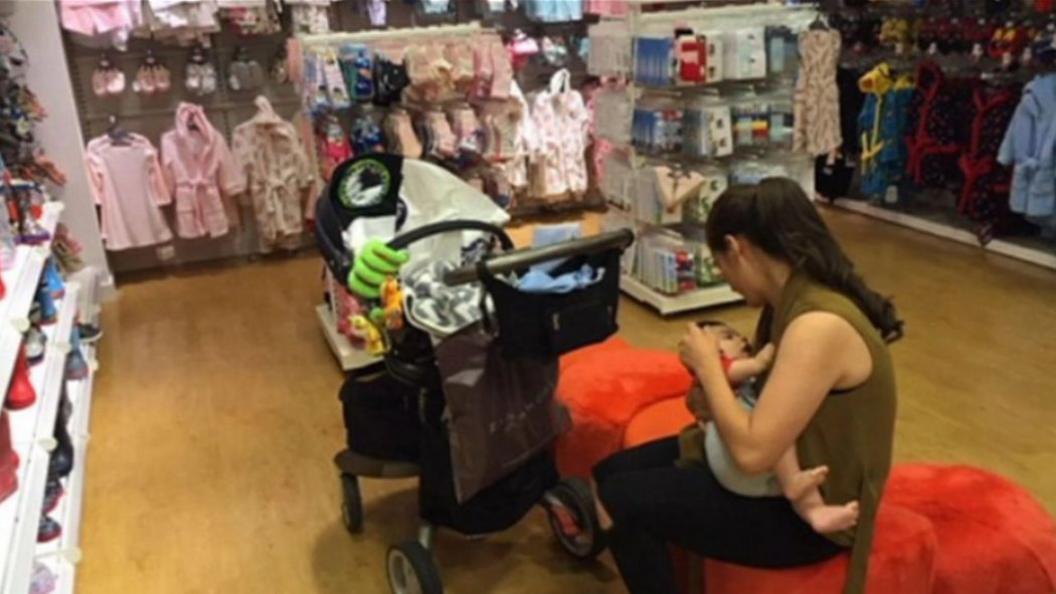Tamara Ecclestone breastfeeding pictures: Why were they controversial?
- Published
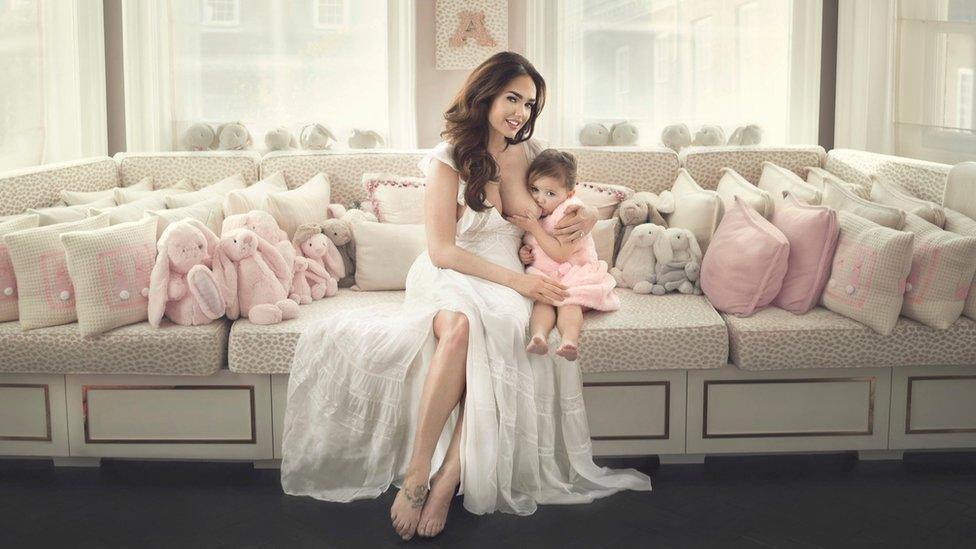
The model sparked an online debate after saying "it has become so normal to hide" breastfeeding
Model Tamara Ecclestone has accused "bitter people" of "hatred" for disapproving of her posting a photograph of herself breastfeeding her daughter, who is almost three.
It has reignited debate over how long - and how publicly - mothers should breastfeed.
Ecclestone, 32, first posted the photo of herself nursing two-year-old Sophia on Instagram on Wednesday.
The model told people to "toss" out the idea that nursing must be kept private.
But some followers criticised the post, prompting her to publish another image and lengthy rebuke a day later.
In her original picture, external, Ecclestone described breastfeeding as a "powerful demonstration of love and nurturing - yet it has become so normal to hide".

Why was the picture controversial?
Some people questioned whether it is appropriate to promote breastfeeding in such a public way - especially for a child who is almost three.
"People shouldn't be plastering picture of children all over social media so everyone can see them," said one Instagram user, little_tiddlers.
Another person disagreed with nursing a toddler: "For babies yes it's beautiful but for two years old it's disgusting."
Ecclestone said it was a "very sad and surprising sign of the times" that the image had prompted negative comments, after uploading a second breastfeeding picture.
In post, external of more than 200 words, she said: "I support and empower all mums and I personally believe hatred is so heavy and bad for the soul."
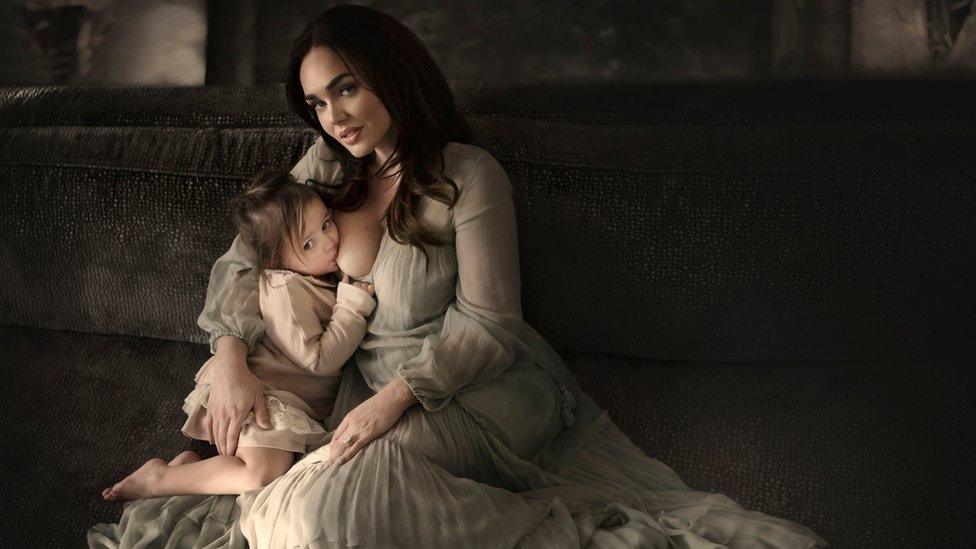
Some mothers defended the photos, which were taken by Ivette Ivens, a Lithuanian photographer who often photographs pregnant and nursing women.
Another mother, Leanne Caffyn, said: "I breastfed my daughter until she was four. I have never understood how people think it is strange."
Helen Tomlinson said: "I love this. I only managed to breastfeed my baby for a month as I felt very uncomfortable in public and even in front of my family."
She said she has now "pushed through the awkwardness".

Should women always breastfeed?
Ecclestone said she was "astonished" that people thought her picture was in some way a criticism of mothers who bottle fed instead of nursing.
"I would never ask someone when they will take away their toddlers' bottle," she said.
But Dr Ellie Lee, director of the University of Kent's Centre for Parenting Studies, was not so surprised.
"Breastfeeding has got so moralised and politicised," she said. "The discussion has got out of control - it's just milk."
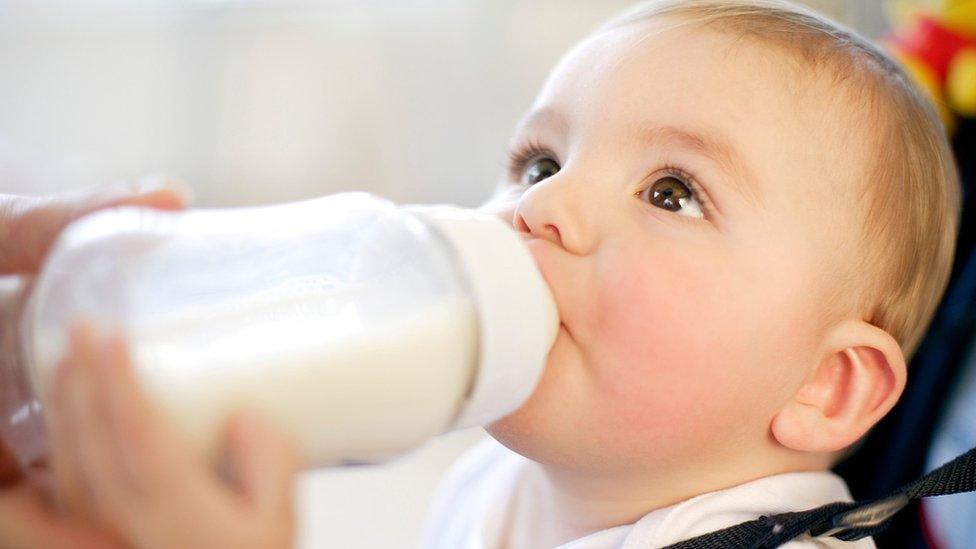
Women in the UK are advised to begin breastfeeding within an hour of their baby being born and then exclusively for six months.
As a result, many women feel like "total failures" the first time they gave their baby a bottle of formula, Dr Lee said.
"Parents shouldn't feel like it's a terrible mistake if they breastfeed or don't breastfeed," she said. "Maybe the mother finds nursing difficult, or the father might want to be involved in feeding."

How long should women breastfeed for?
Ecclestone said some people were "angry" at her parenting decision to breastfeed a two-year-old.
But when should women stop breastfeeding?
The World Health Organisation (WHO) recommends continued breastfeeding, along with other sources of nutrition, for two years or more.
But British women are "voting with their feet" by stopping nursing much earlier, said Dr Lee.
Just 1% to 2% of women exclusively feed their baby with breast milk up to the age of six months, the NHS' 2010 Infant Feeding Survey, external has found.
"Why be sniffy about doing a bit of both, if so many women are choosing to mix feed or use a bottle?" she asked.
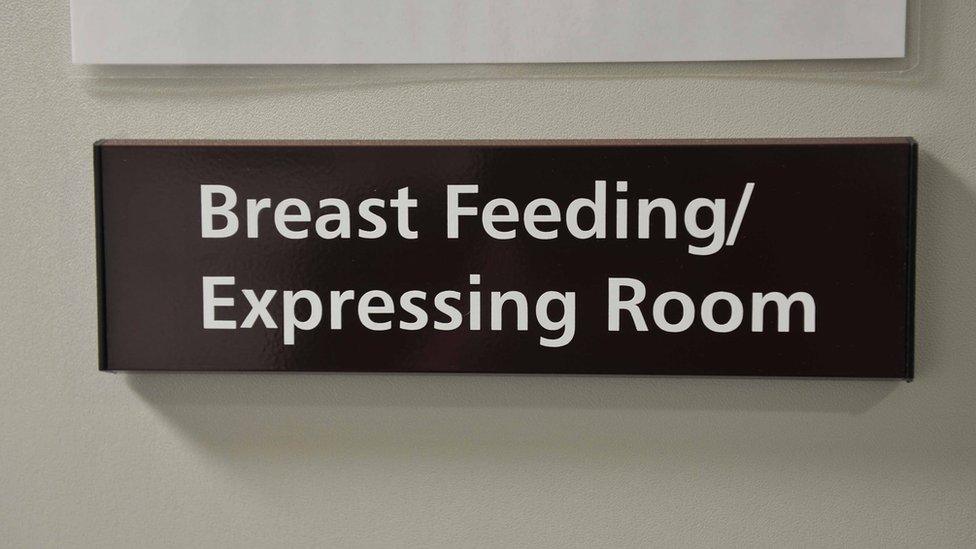
Anna Burbidge from La Leche League GB, a breastfeeding education charity, also argued that there should be no fixed end-point.
"Just as babies walk, talk and come out of nappies at different ages, they will also have different breastfeeding needs," she said.
At the same time, there is no evidence to suggest that breastfeeding a child beyond infancy is harmful, she said.
"Ideally breastfeeding will continue until both mother and child are ready to stop," Ms Burbidge added.

Breastfeeding in public: Still taboo?
Ecclestone also accused her critics of "trying to sexualise breastfeeding" by deeming her photo inappropriate.
But women in the UK are entitled to breastfeed in public and in their place of work under the Equality Act, external. Scotland has additional protection for mothers, with a law, external making it an offence to try to stop a mother feeding a child up to the age of two.
It remains a taboo subject, with some businesses ignoring the law by telling nursing mothers to "cover up" in pubs, restaurants or shops.
The online reaction to Ecclestone's post is another sign that "society is failing to support many mothers" who want to nurse openly, said Dr Wendy Jones, author of Breastfeeding for Dads and Grandmas.
"The photographs speak of a baby being loved and nurtured by her mother," she said. "But in so many areas of social media it seems okay to criticise other people."
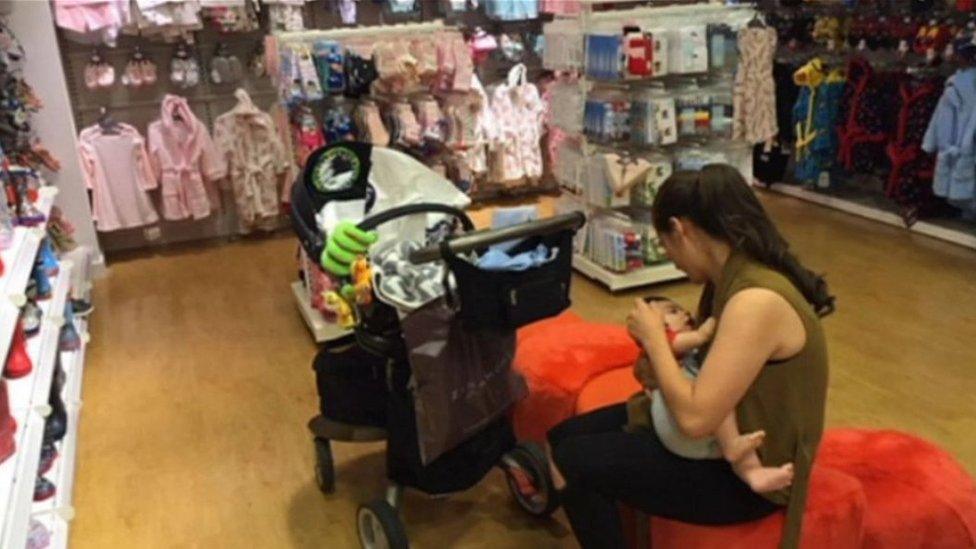
Zoe Frangou was in Mothercare when her three-month-old baby woke up hungry
Sue Ashmore, a director of Unicef's UK Baby Friendly Initiative, suggests that mothers of newborns are "set up to fail".
Ms Ashmore said official advice that "breast is best" is unhelpful when women who want to nurse feel unable to do so openly.
"It's a lethal combination," she said. "It makes them feel really guilty about it."

We would like to hear what you think about breastfeeding. Is nursing a toddler acceptable? And what about your experiences of breastfeeding in public? Please email us at haveyoursay@bbc.co.uk or tweet, external us.
- Published20 August 2011
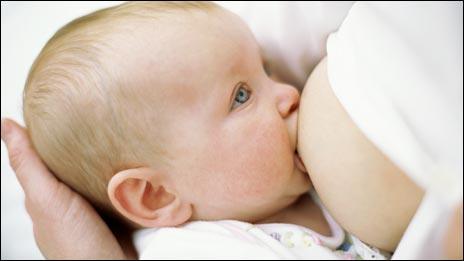
- Published29 January 2016
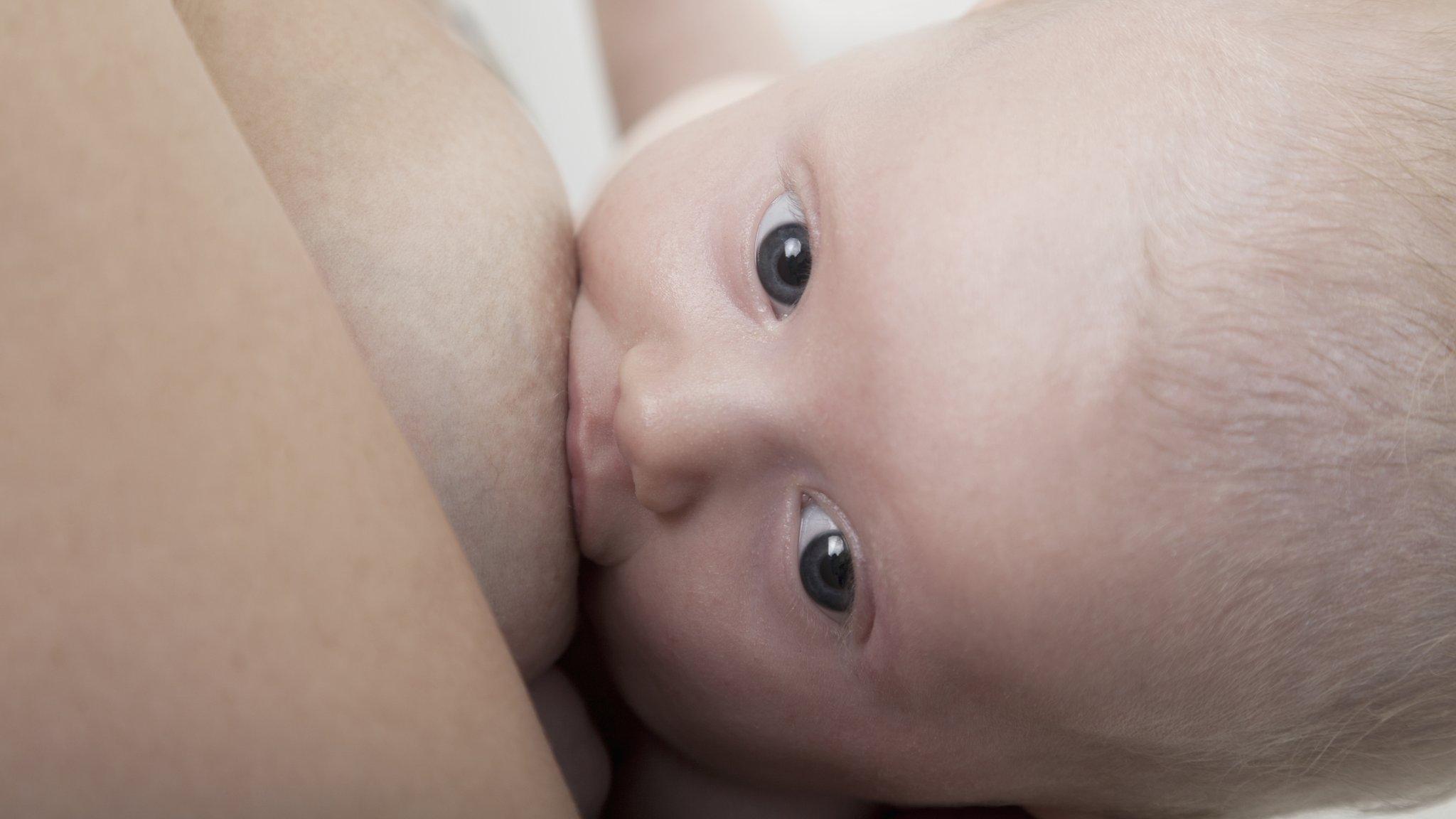
- Published25 August 2016
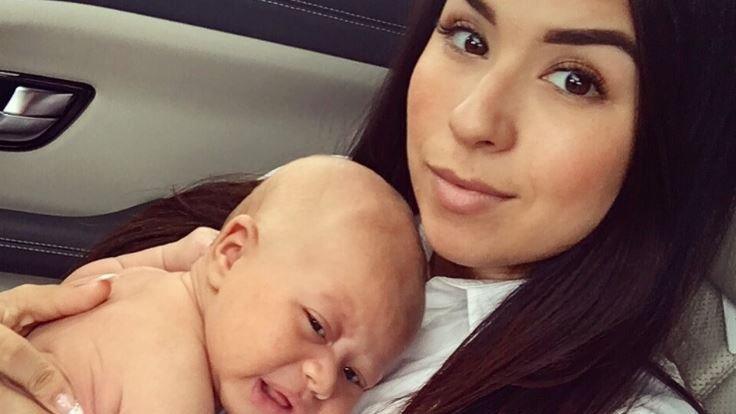
- Published1 November 2016
